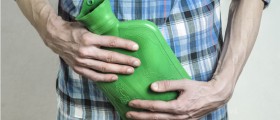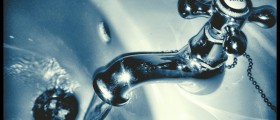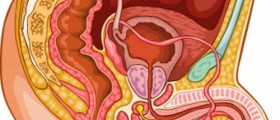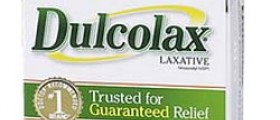
Fecal incontinence is a rather embarrassing medical condition characterized by one's inability to hold stool. Involuntary stool leakage is actually the main characteristic of the condition and basically results from insufficient contraction of the sphincter muscle. Many times the problem is transient. However, in some cases fecal incontinence is a permanent medical issue requiring a serious and complex treatment approach.
Even though fecal incontinence may affect people of all ages, it is more common in older individuals and may sometimes represent even the normal course of the process of aging.
Causes
There is a variety of underlying causes of fecal incontinence, all of which demand different treatment approach. The most common causes are definitely constipation, diarrhea and muscle or nerve damage to the rectum and anal area.
Constipation is one of leading causes of fecal incontinence. Namely, the intestinal muscles of people suffering from constipation are weak. Rectal muscles become weaker as well which subsequently leads to inability to hold feces. Diarrhea is also commonly reported cause of fecal incontinence but it is generally a transient problem.
Another frequently reported cause of fecal incontinence is direct damage to the sphincter muscles of the rectum (the external and internal anal sphincters). Damage to these muscles occurs in women during childbirth. The chances that the sphincter muscles are going to be damaged are increased if delivery requires the use of forceps or a woman undergoes episiotomy. Furthermore, any kind of surgery in the anal area may cause damage to these muscles as a side effect. Even the presence of the tumor (usually the malignant one) is to blame for fecal incontinence associated with damage to the sphincter muscles. Scientists have not managed to determine whether having regular anal sex increases or decreases chances of developing fecal incontinence. Some say that this form of sexual intercourse can significantly contribute to the health issue, while others say that there is no connection between having anal sex on a regular basis and fecal incontinence whatsoever.
Furthermore, damage to the nerves innervating the aforementioned muscles is another reason why a person may develop this debilitating condition. Nerve damage of this type is also connected with childbirth but it can also develop as a consequence of a stroke, prolonged constipation as well as certain neurological diseases.
Under certain circumstances normal tissues of the rectum may be replaced with scars. This occurs in individuals who have undergone some surgery, radiation therapy of the rectum or suffer from inflammatory bowel disease. The very presence of scars does not allow the organ to expand sufficiently and hold feces. This leads to fecal leakage.
Finally, there are several more causes including excretory issues, fecal impaction, intake of certain drugs etc.
Diagnosis
Medical experts estimate the severity of fecal incontinence thanks to the Cleveland Clinic Incontinence score. This is a rather easy and practical way of assessing the extent of the issue. The frequency of incontinence as well as the use of pads are only two factors taken into consideration when diagnosing fecal incontinence. It is also essential to determine the type of leakage i.e. whether it is gas, mucus, liquid stool or solid stool and to determine the frequency of incontinence.
Additional tests which are of major importance when it comes to this medical condition are Anorectal manometry, endoanal ultrasound, proctosigmoidoscopy, AMS, Williams score, Miller score and several more. Apart from being efficient in estimating the degree of fecal incontinence, most of these tests are also important for identifying the underlying cause of the disease.
Treatment
The severity of fecal incontinence along with the underlying cause determine the type of treatment doctors opt for. Mild cases are treated conservatively, while complex fecal incontinence requires surgical treatment.
Initially, when the problem is not so severe, patients may benefit from dietary changes, some drugs and bowel training. Diet of such patients should include foods that add bulk to stool and decrease the amount of water in the feces. Furthermore, food products containing substances that relax the sphincter muscles should be avoided. Fruits are known to stimulate bowel movement, therefore they may be consumed but rarely. Medications that are prescribed to these patients include antipropulsive drugs. Still, these cannot be used for a long period of time.
Surgery, a last resort for all those individuals who do not respond to conservative treatments may be in the form of colostomy, cecostomy with antegrade enema program, artificial anal sphincter, antegrade continent enema stoma or sacral nerve stimulation.
Relevant Data
Experts have confirmed that approximately 6.5 million people living in the United States suffer from fecal incontinence. As for women, one in ten is dealing with the issue. Every 15th woman faces moderate to severe form of the disease. When it comes to women who have had delivery, 2.2% of them will experience fecal incontinence. In older individuals, 7% of people of 65 years of age or older suffer from fecal incontinence. 25% of these individuals have developed the condition due to a stroke.

















Your thoughts on this
Loading...